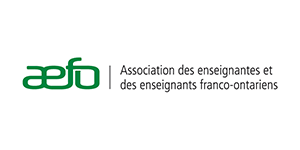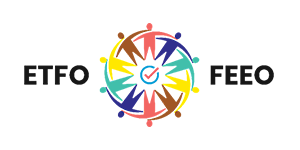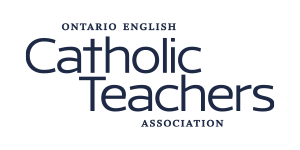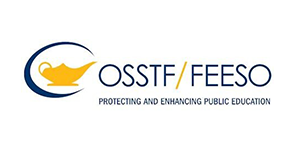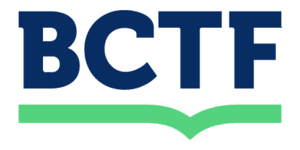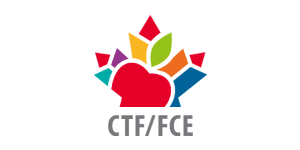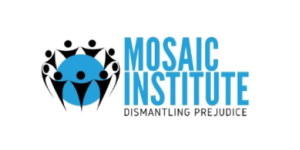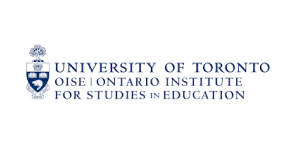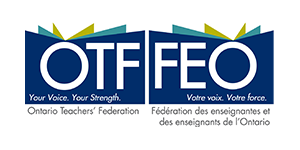- Need Technical Assistance? tech@vfairs.com


Educators have a critical role to play in creating anti-racist classrooms but also building a learning environment that supports student mental health and wellbeing. To support K-12 educators, this one-day virtual conference will build knowledge of practices to increase cultural competency and student wellbeing and explore how racism impacts mental health. Conference participants will develop their understanding and learn practical tools to create anti-racist classroom spaces.
This conference will:

 November 30, 2023 09:40 am
November 30, 2023 09:40 am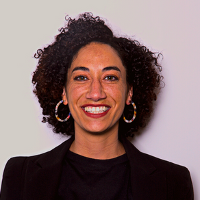
Justine Hicks
 November 30, 2023 10:00 am
November 30, 2023 10:00 am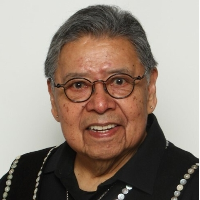
Dr. Martin Brokenleg
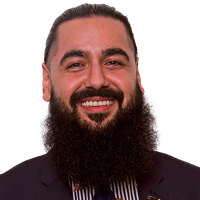
Shafiq Aziz
Decolonizing Mental Health and Wellbeing
 November 30, 2023 11:00 am
November 30, 2023 11:00 am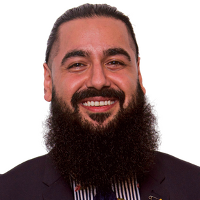
Shafiq Aziz
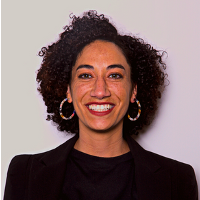
Justine Hicks
Deepen your understanding around your personal bias and the impacts racism has on mental health.
 November 30, 2023 11:00 am
November 30, 2023 11:00 am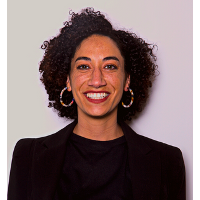
Justine Hicks
Program
Manager
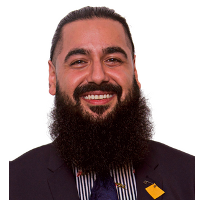
Shafiq Aziz
Director of
Programs
Deepen your understanding around your personal bias and the impacts racism has on mental health.
 November 30, 2023 11:30 am
November 30, 2023 11:30 amParticipants will get to select a workshop to build their understanding on specific topics. Workshop registration will open in late October.
 November 30, 2023 01:00 pm
November 30, 2023 01:00 pmBring your lunch and connect on specific topics or join an affinity group
 November 30, 2023 01:45 pm
November 30, 2023 01:45 pm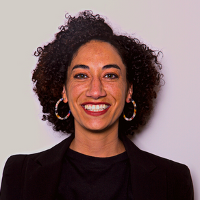
Justine Hicks
Connecting physical and mental wellbeing
 November 30, 2023 02:00 pm
November 30, 2023 02:00 pm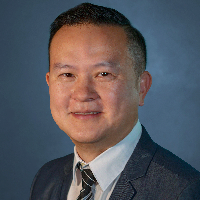
Dr. Kien Nam Luu
Superintendent
of Education - York Region District School Board
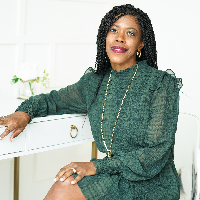
Claudette Rutherford
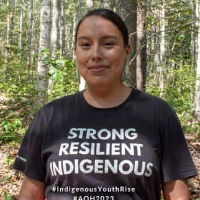
Behduhbuhn Logan
Youth Hope
Ambassador - We Matter
Best Practices on making classrooms healing spaces
 November 30, 2023 02:45 pm
November 30, 2023 02:45 pmJoin others in similar roles to you and work together to develop a plan on how you can embed learnings from today in your class or school tomorrow.
 November 30, 2023 03:15 pm
November 30, 2023 03:15 pm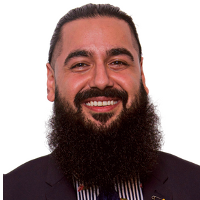
Shafiq Aziz
 November 30, 2023 03:30 pm
November 30, 2023 03:30 pm November 30, 2023 09:40 am
November 30, 2023 09:40 am November 30, 2023 10:00 am
November 30, 2023 10:00 am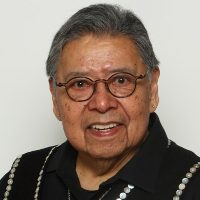
Dr. Martin Brokenleg
Décoloniser la santé mentale et le bien-être
 November 30, 2023 11:00 am
November 30, 2023 11:00 am
Shafiq Aziz
Director of
Programs
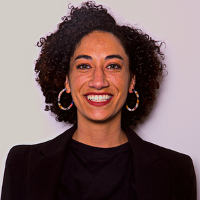
Justine Hicks
Gestionnaire de
programme
Approfondissez
Votre Compréhension De Vos Préjugés Personnels Et Des Impacts Du Racisme Sur La
Santé Mentale.
 November 30, 2023 11:30 am
November 30, 2023 11:30 amLes Participants
Pourront Choisir Un Atelier Pour Approfondir Leur Compréhension Sur Des Sujets
Spécifiques. Les Inscriptions Aux Ateliers Ouvriront Fin Octobre.
 November 30, 2023 01:00 pm
November 30, 2023 01:00 pmApportez Votre
Lunch Et Connectez-Vous Sur Des Sujets Spécifiques Ou Rejoignez Un Groupe D'affinité
 November 30, 2023 01:45 pm
November 30, 2023 01:45 pmRelier
Le Bien-Être Physique Et Mental
 November 30, 2023 02:00 pm
November 30, 2023 02:00 pm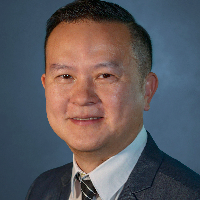
Dr. Kien Nam Luu
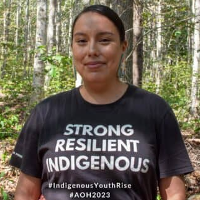
Behdahbuhn Logan
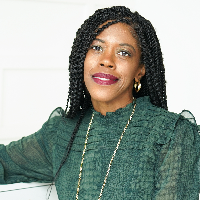
Claudette Howell Rutherford
Meilleures
Pratiques Pour Faire Des Salles De Classe Des Espaces De Guérison
 November 30, 2023 02:45 pm
November 30, 2023 02:45 pmRejoignez
D'autres Personnes Exerçant Des Fonctions Similaires Aux Vôtres Et Travaillez
Ensemble À L'élaboration D'un Plan Sur La Manière Dont Vous Pourrez Intégrer Les
Enseignements D'aujourd'hui Dans Votre Classe Ou Votre École Demain.
 November 30, 2023 03:15 pm
November 30, 2023 03:15 pm November 30, 2023 03:30 pm
November 30, 2023 03:30 pm November 30, 2023 11:30 am
November 30, 2023 11:30 am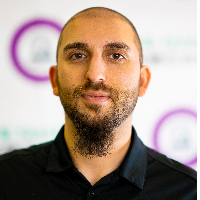
Ardavan Eizadirad
Assistant
Professor - Faculty of Education, Wilfrid Laurier University
This workshop will discuss the importance and strategies for decolonizing the classroom by centering Equity, Diversity, and Inclusion to create better supporting environments that reflect the needs of vulnerable and minoritized students and community members. Although we will discuss the inequities and systemic barriers that impact students, families, and communities, the goal is to advance the dialogue and conversations beyond critique to discussing solutions and culturally sustaining pedagogies. The objective is to align policies and practices to meet the needs of students, families, and communities while navigating the hierarchical power dynamics of school environments.
 November 30, 2023 11:30 am
November 30, 2023 11:30 am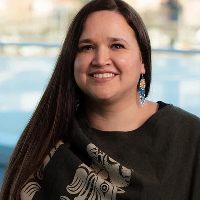
Robyn Ward
CEO and Founder -
Rewarding Relationships
Samuel Kwendo
The workshop will guide through practice the Cultivating Safe Spaces model and the conditions and protocols for Cultivating Safe Spaces. Robyn will explain how the guiding principles work together to Cultivate Safe Spaces inspired by Indigenous epistemology, worldview and values that align perfectly with a growth mindset. The conditions are understanding self, love-based practice, patience and discipline. The protocols are well-being, inclusion, validation, and freedom.
 November 30, 2023 11:30 am
November 30, 2023 11:30 am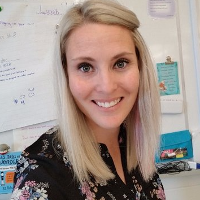
Danielle McKay
Teacher - Halton
Catholic District School Board
Uncover the history of why racial disparities exist in Canada and why it isn't enough to "not be" racist. An anti-racist framework acknowledges the role of the public educational system in Canada in producing and reproducing racial, gender, and class-based inequalities in society. Participants will learn to teach a curriculum through the “big ideas” in an attempt to combat biases that reinforce current systems of domination.
 November 30, 2023 11:30 am
November 30, 2023 11:30 am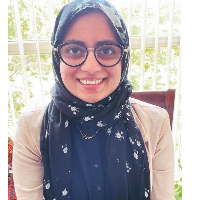
Rabia Khokar
Teacher, PHD
Student
In this workshop, participants will have the opportunity to critically think about the important role picture books play in the classroom and how they are often a springboard for literacy, joy, and healing practices. Through interactive components like whole and small group discussions, quote analysis, self-reflection, and other methods to bring theory to practice, we will think about how picture books can also be tools we can use to help our students engage in anti-racism and critical consciousness in meaningful, relevant and responsive ways. Participants will have the opportunity to consider how to select picture books critically for their students and learn cross-curricular ways on ‘how’ we can put the books to action to build inclusive classrooms.
 November 30, 2023 11:30 am
November 30, 2023 11:30 am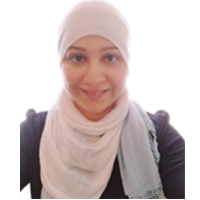
Khulood Agha Khan
Elementary
Teacher - Halton District School Board

Rita Bhandari
This workshop delves into the experiences of women of color, providing insights into the scientific aspects of race, and unpacking biases and stereotypes, particularly within the realm of education. Throughout this workshop, we prioritize the concept of explicit teaching about race, encouraging participants to engage deeply with these critical issues. By bringing real-life scenarios into the discussion, we aim to foster a safe and open environment for dialogue. Our ultimate objective is to collaboratively develop effective strategies to actively combat racism in educational settings and beyond. Together, we strive to build a more inclusive and equitable future with the ultimate goal of collaboratively discovering strategies to confront and combat racism.
 November 30, 2023 11:30 am
November 30, 2023 11:30 am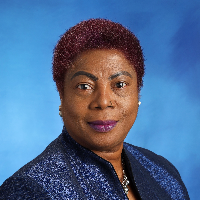
Wonuola Yomi-Odedeyi
Experiential
Learning Lead - Halton District School Board
This presentation seeks to explore the profound impact of knowing and understanding the meaning of one's name, especially in the context of individuals from diverse racial and ethnic backgrounds. In the broader framework of mental health, race, and racism in K-12 education, our workshop will delve into the significance of names as a fundamental aspect of personal identity and cultural heritage. By researching and embracing the meaning behind their names, individuals can experience a deeper connection to their cultural roots, enhanced self-identity, and increased resilience against racial bias and discrimination.
This presentation aims to complement the conference's focus by addressing the importance of names within the context of mental health, race, and racism, ultimately fostering a stronger sense of self-identity and cultural appreciation among attendees.
 November 30, 2023 11:30 am
November 30, 2023 11:30 am
Rizwana Kaderdina
Educator

Nicole Ricketts
Vice
Principal

Initha Subramaniam
Vice
Principal
In this workshop, a story-telling approach will be used to explore some of the ways cross-racial solidarities can serve as protective mechanisms against racial trauma, as sources of collective action, and as spaces for community and healing. Drawing upon the work of Rita Kohli, Bobbi Harro, and Geneva Gay, amongst others, we will examine the ways in which cross-racial solidarities, in protecting our own wholeness and well-being as educators, can positively impact our students, and help dismantle racial hierarchies.
 November 30, 2023 11:30 am
November 30, 2023 11:30 am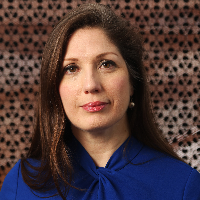
Nathalie Sirois
Gestionnaire
principale, Education - Centre mondial du pluralisme
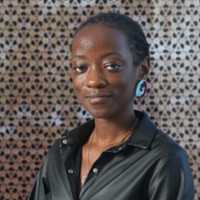
Nicole Ciza
Pour être efficace en matière d’antiracisme, il faut d’abord être capable de reconnaître le racisme… Ou s’agit-il plutôt des racismes? De quoi parle-t-on au juste lorsque l’on parle de racisme(s)? Un atelier qui aborde la question en se référant d’abord à des contextes francophones de manière à se doter de moyens d’analyser et d’agir au sein d’écoles de langue française qui sont véritablement transformatrices et qui favorisent la santé mentale d’élèves doublement minorisés : les élèves francophones racisés.
 November 30, 2023 11:30 am
November 30, 2023 11:30 am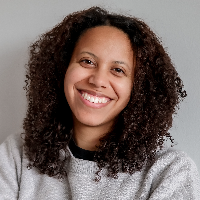
Marika Kunnas
PhD Candidate / LTO
- York University
This workshop will start with a reflection on what mental wellness and community looks like within education and specifically in French classes. We will share and question how teachers have fostered wellness and community, including successes and challenges. Principles of antiracism and anticolonialism will be presented and discussed. Collaboratively, we will consider how we can foster wellness from an antiracist, anticolonial lens in French courses. Participants will leave with a summary sheet of antiracist and anticolonial principles, suggestions for action, resources, and networking connections. This workshop is for those who are ready to or have already started integrating mental wellness and/or community strategies in their classrooms or with their colleagues.
Cet atelier commencera par une réflexion sur ce à quoi ressemble le bien-être mental et la communauté dans l'éducation et plus particulièrement dans les cours de français. Nous partagerons et questionnerons la façon dont les enseignants ont favorisé le bien-être et la communauté, y compris les succès et les défis. Les principes de l'antiracisme seront présentés et discutés. En collaboration, nous réfléchirons à la manière dont nous pouvons favoriser le bien-être dans une optique antiraciste dans les cours de français et entre nos collègues. Les participants repartiront avec une fiche récapitulative des principes antiracistes et anticoloniaux, des suggestions d'action, des ressources et des liens de réseautage. Cet atelier s’adresse à ceux et celles qui sont prêt.e.s (ou qui ont déjà commencé) à intégrer des stratégies et pratiques ciblant la santé mentale et/ou la communauté, soit dans les salles de classe, soit entre des collègues.
 November 30, 2023 11:30 am
November 30, 2023 11:30 am
Marika Kunnas
PhD Candidate / LTO
- York University
This workshop will start with a reflection on what mental wellness and community looks like within education and specifically in French classes. We will share and question how teachers have fostered wellness and community, including successes and challenges. Principles of antiracism and anticolonialism will be presented and discussed. Collaboratively, we will consider how we can foster wellness from an antiracist, anticolonial lens in French courses. Participants will leave with a summary sheet of antiracist and anticolonial principles, suggestions for action, resources, and networking connections. This workshop is for those who are ready to or have already started integrating mental wellness and/or community strategies in their classrooms or with their colleagues.
Cet atelier commencera par une réflexion sur ce à quoi ressemble le bien-être mental et la communauté dans l'éducation et plus particulièrement dans les cours de français. Nous partagerons et questionnerons la façon dont les enseignants ont favorisé le bien-être et la communauté, y compris les succès et les défis. Les principes de l'antiracisme seront présentés et discutés. En collaboration, nous réfléchirons à la manière dont nous pouvons favoriser le bien-être dans une optique antiraciste dans les cours de français et entre nos collègues. Les participants repartiront avec une fiche récapitulative des principes antiracistes et anticoloniaux, des suggestions d'action, des ressources et des liens de réseautage. Cet atelier s’adresse à ceux et celles qui sont prêt.e.s (ou qui ont déjà commencé) à intégrer des stratégies et pratiques ciblant la santé mentale et/ou la communauté, soit dans les salles de classe, soit entre des collègues.
 November 30, 2023 11:30 am
November 30, 2023 11:30 am
Nathalie Sirois
Gestionnaire
principale, Education - Centre mondial du pluralisme

Nicole Ciza
Pour être efficace en matière d’antiracisme, il faut d’abord être capable de reconnaître le racisme… Ou s’agit-il plutôt des racismes? De quoi parle-t-on au juste lorsque l’on parle de racisme(s)? Un atelier qui aborde la question en se référant d’abord à des contextes francophones de manière à se doter de moyens d’analyser et d’agir au sein d’écoles de langue française qui sont véritablement transformatrices et qui favorisent la santé mentale d’élèves doublement minorisés : les élèves francophones racisés.
 November 30, 2023 11:30 am
November 30, 2023 11:30 am
Ardavan Eizadirad
Assistant
Professor - Faculty of Education, Wilfrid Laurier University
This workshop will discuss the importance and strategies for decolonizing the classroom by centering Equity, Diversity, and Inclusion to create better supporting environments that reflect the needs of vulnerable and minoritized students and community members. Although we will discuss the inequities and systemic barriers that impact students, families, and communities, the goal is to advance the dialogue and conversations beyond critique to discussing solutions and culturally sustaining pedagogies. The objective is to align policies and practices to meet the needs of students, families, and communities while navigating the hierarchical power dynamics of school environments.
 November 30, 2023 11:30 am
November 30, 2023 11:30 am
Robyn Ward
CEO and Founder -
Rewarding Relationships
The workshop will guide through practice the Cultivating Safe Spaces model and the conditions and protocols for Cultivating Safe Spaces. Robyn will explain how the guiding principles work together to Cultivate Safe Spaces inspired by Indigenous epistemology, worldview and values that align perfectly with a growth mindset. The conditions are understanding self, love-based practice, patience and discipline. The protocols are well-being, inclusion, validation, and freedom.
 November 30, 2023 11:30 am
November 30, 2023 11:30 am
Danielle McKay
Teacher - Halton
Catholic District School Board
Uncover the history of why racial disparities exist in Canada and why it isn't enough to "not be" racist. An anti-racist framework acknowledges the role of the public educational system in Canada in producing and reproducing racial, gender, and class-based inequalities in society. Participants will learn to teach a curriculum through the “big ideas” in an attempt to combat biases that reinforce current systems of domination.
 November 30, 2023 11:30 am
November 30, 2023 11:30 am
Rabia Khokar
Teacher, PHD
Student
In this workshop, participants will have the opportunity to critically think about the important role picture books play in the classroom and how they are often a springboard for literacy, joy, and healing practices. Through interactive components like whole and small group discussions, quote analysis, self-reflection, and other methods to bring theory to practice, we will think about how picture books can also be tools we can use to help our students engage in anti-racism and critical consciousness in meaningful, relevant and responsive ways. Participants will have the opportunity to consider how to select picture books critically for their students and learn cross-curricular ways on ‘how’ we can put the books to action to build inclusive classrooms.
 November 30, 2023 11:30 am
November 30, 2023 11:30 am
Khulood Agha Khan
Elementary
Teacher - Halton District School Board

Rita Bhandari
This workshop delves into the experiences of women of color, providing insights into the scientific aspects of race, and unpacking biases and stereotypes, particularly within the realm of education. Throughout this workshop, we prioritize the concept of explicit teaching about race, encouraging participants to engage deeply with these critical issues. By bringing real-life scenarios into the discussion, we aim to foster a safe and open environment for dialogue. Our ultimate objective is to collaboratively develop effective strategies to actively combat racism in educational settings and beyond. Together, we strive to build a more inclusive and equitable future with the ultimate goal of collaboratively discovering strategies to confront and combat racism.
 November 30, 2023 11:30 am
November 30, 2023 11:30 am
Wonuola Yomi-Odedeyi
Experiential
Learning Lead - Halton District School Board
This presentation seeks to explore the profound impact of knowing and understanding the meaning of one's name, especially in the context of individuals from diverse racial and ethnic backgrounds. In the broader framework of mental health, race, and racism in K-12 education, our workshop will delve into the significance of names as a fundamental aspect of personal identity and cultural heritage. By researching and embracing the meaning behind their names, individuals can experience a deeper connection to their cultural roots, enhanced self-identity, and increased resilience against racial bias and discrimination.
This presentation aims to complement the conference's focus by addressing the importance of names within the context of mental health, race, and racism, ultimately fostering a stronger sense of self-identity and cultural appreciation among attendees.
 November 30, 2023 11:30 am
November 30, 2023 11:30 am
Rizwana Kaderdina
Educator

Initha Subramaniam
Vice
Principal

Nicole Ricketts
Vice
Principal
In this workshop, a story-telling approach will be used to explore some of the ways cross-racial solidarities can serve as protective mechanisms against racial trauma, as sources of collective action, and as spaces for community and healing. Drawing upon the work of Rita Kohli, Bobbi Harro, and Geneva Gay, amongst others, we will examine the ways in which cross-racial solidarities, in protecting our own wholeness and well-being as educators, can positively impact our students, and help dismantle racial hierarchies.
